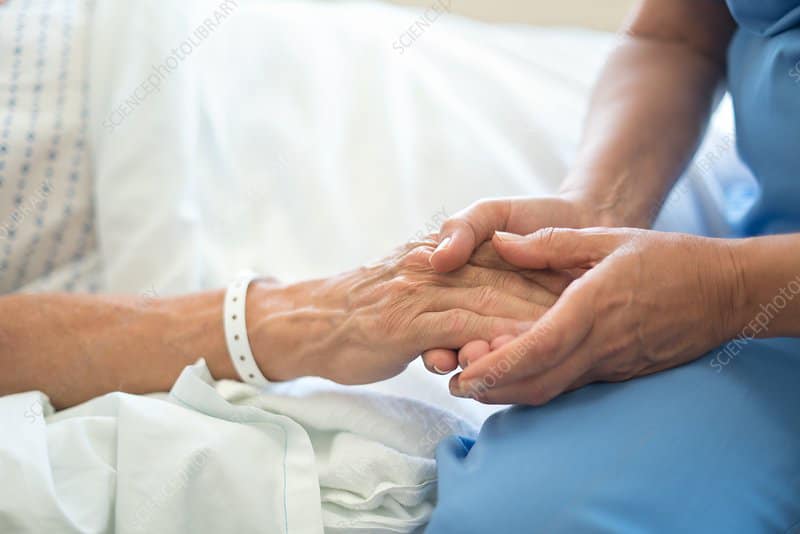As the Department of Health issues guidance to domiciliary workers across Northern Ireland, concerns are already mounting about the possibility of a Covid-19 outbreak in residential and nursing homes.
By way of an update on coronavirus in Northern Ireland, against this fear, already there has been an outbreak in a West Belfast care home as reported in the Irish News today where four residents passed away, and it is estimated that across the UK a possible 1000 residents may have succumbed to the virus according to The Times. Their deaths are not recorded in the official daily death toll.

The Royal College of Nursing (RCN) reports The Times as saying nurses are within their legal right not to treat patients if they are not supplied with adequate Personal Protective Equipment (PPE) this putting themselves at serious risk of infection. This goes against the ethical position that drives nurses to look after their patients.
Check out the RCN’s POSITION STATEMENT.
And to make matters worse, the Chancellor of the Exchequer is suggesting that the UK’s GDP could fall by 30%, indicating the economic dimension to coronavirus suggests a long period of recession, depression, or a need to reset the economic button internationally as stock markets too face collapse.
On BBC NI TV today it was reported medical services may be cut if the supply of PPE is not met suggesting some nurses taking taking blood samples had no face masks. Amidst widespread growing concerns that the supply of PPE is too slow to meet demand, the Dail Mail from its home page described the delivery of much-needed PPE especially from China as ‘hand to mouth’ and totally shambolic.
But as the crisis deepens we have more ‘orange and green’ drama as The Belfast Telegraph and Irish News front pages report the spat been NI Health Minister Swann and Sinn Féin deputy leader Michelle O’Neill. Swann sought to utilise the army to help distribute essential equipment, and O’Neill accused him of not consulting with his Executive colleagues. In England, 200 military personnel have already been deployed to help the ambulance service to date in the coronavirus outbreak.
Deaths in the UK have now reached over 10,000 and this figure is likely to continue to peak for more days to come and in the ROI this figure as of yesterday was 452.
Deaths in care homes are expected to rise in the coming weeks across Northern Ireland. Staff will need to the difficult circumstances – of treating patients with a range of illnesses and conditions – the correct PPE.
This Covid-19 epidemic certainly a time for political leadership and decisive decision-making to support our front line workers, be they medical staff in hospitals or staff in nursing and residential homes.
Updated guidance for domiciliary care providers.
The Department of Health has published updated guidance for domiciliary care providers in Northern Ireland.
The guidance provides clear direction to trusts and independent providers on supply of PPE and staffing arrangements. This includes the provision of a buffer stock; connecting independent providers with PPE suppliers; and supporting staffing arrangements.
Speaking today, Chief Social Worker Sean Holland said: “Domiciliary care plays a vital role in helping people to live as independently as possible. During this pandemic it is essential that we do everything we can to support it. That is why we have issued this new guidance.
“This is the latest in a series of measures taken to help domiciliary care and care homes to meet the challenge of Covid-19.”
Measures have included:
- Providing a single point of contact in each of the trusts for accessing PPE;
- Financial support – guaranteeing income for providers to ensure they can continue to pay staff and are not penalised for cancelled calls;
- Making recruitment swifter and easier by changing pre-employment checks and deferring registration fees;
- Flexibility in the way regulations will be applied; and
- Ongoing support advice and help from a specialist team of experts based in the RQIA.
Social care is playing its part by helping to keep people out of hospital and ensuring timely hospital discharges for those that have been admitted. As we face the increased demand for acute care beds this is critical to how the whole health and care system responds.
Mr Holland said: “There has been a lot of focus on the idea that some jobs are key and the people who do them are key workers. Let there be no doubt that care workers fall into that category. Regardless of who employs them, we must recognise them as all being members of the health and social care family. And as members of that family they must have the same access to PPE, testing and advice as HSC Trust staff in line with published guidance. There can be no distinction in this regard between those directly working for Trusts and those who work for organisations on behalf of those Trusts. We have to be as one.”


























